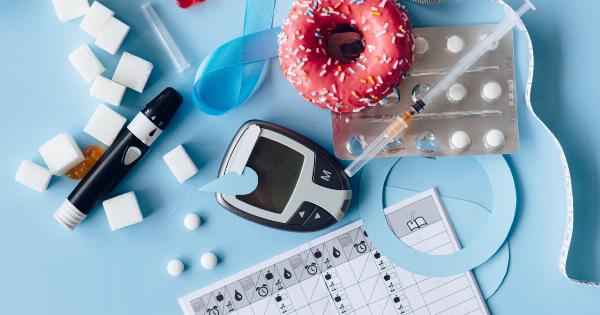When it comes to staying healthy, prevention is key. One of the best ways to prevent illness and disease is to get regular check-ups and screenings. These exams can help catch potential health problems early, when they are more easily treatable.
1. Annual Physical
An annual physical is a comprehensive exam that includes a review of your medical history, vital signs, and physical exam. It also includes laboratory tests, such as blood work, to check for any abnormalities or signs of disease.
During your annual physical, your healthcare provider will assess your overall health and discuss any concerns or changes in your health since your last visit.
They may also provide routine vaccinations and offer suggestions for ways to maintain or improve your health.
2. Blood Pressure Screening
High blood pressure, also known as hypertension, is a common condition that can lead to serious health problems, such as heart disease and stroke.
Getting your blood pressure checked regularly can help you manage the condition and reduce your risk of these complications.
A blood pressure screening involves placing a cuff around your upper arm and inflating it to measure the force of blood against your artery walls.
Your healthcare provider may recommend more frequent screenings if you have high blood pressure or other risk factors for heart disease.
3. Cholesterol Test
Cholesterol is a type of fat found in your blood that can build up in your arteries and increase your risk of heart disease.
A cholesterol test measures the levels of various types of cholesterol in your blood, including LDL (bad) cholesterol and HDL (good) cholesterol.
Your healthcare provider may recommend a cholesterol test if you have a family history of heart disease, high blood pressure, or other risk factors for heart disease.
Depending on your results, they may recommend lifestyle changes, such as diet and exercise, or medication to manage your cholesterol levels.
4. Diabetes Screening
Diabetes is a condition in which your body is unable to regulate blood sugar levels properly. It can lead to a range of health problems, including nerve damage, kidney disease, and cardiovascular disease.
A diabetes screening involves a blood test that measures your blood sugar levels.
Your healthcare provider may recommend a diabetes screening if you have a family history of diabetes, are overweight or obese, or have other risk factors for the condition.
Depending on your results, they may recommend lifestyle changes, such as diet and exercise, or medication to manage your blood sugar levels.
5. Pap Smear
A pap smear is a test that screens for cervical cancer in women. During the test, a healthcare provider collects cells from the cervix and analyzes them for any abnormalities or signs of cancer.
Your healthcare provider may recommend a pap smear starting at age 21 or within three years of becoming sexually active, whichever comes first.
How often you should have a pap smear depends on your age and other factors, such as your medical history and sexual activity.
6. Mammogram
A mammogram is a screening test that uses X-rays to check for breast cancer in women. The test involves pressing each breast between two plates to flatten and spread out the tissue, allowing for clearer images.
Your healthcare provider may recommend a mammogram starting at age 40 or earlier if you have a family history of breast cancer. How often you should have a mammogram depends on your age, medical history, and other factors.
7. Colonoscopy
A colonoscopy is a screening test that checks for colon cancer and other abnormalities in the colon and rectum. During the test, a healthcare provider inserts a thin, flexible tube with a camera on the end into your colon to look for any abnormalities.
Your healthcare provider may recommend a colonoscopy starting at age 50, or earlier if you have a family history of colon cancer or other risk factors. The frequency of the test depends on your age and other factors.
8. Skin Exam
A skin exam is a check for any signs of skin cancer or other skin conditions. During the exam, a healthcare provider will examine your skin for any unusual moles, growths, or changes.
Your healthcare provider may recommend a skin exam if you have a family history of skin cancer or other risk factors. They may also recommend self-exams and provide guidance on how to identify any changes in your skin.
9. Eye Exam
An eye exam is a test that checks for vision problems and eye diseases, such as glaucoma and cataracts.
During the exam, a healthcare provider will evaluate your vision and eye health and may dilate your pupils to get a better view of the inside of your eye.
Your healthcare provider may recommend an eye exam starting at age 40 or earlier if you have a family history of eye disease or other risk factors. The frequency of the test depends on your age and other factors.
10. Dental Exam
A dental exam is a check for any issues with your teeth and gums, such as cavities, gum disease, or oral cancer. During the exam, a dentist will examine your teeth and gums and may perform X-rays to see any underlying issues.
Your dentist may recommend a dental exam every six months or more frequently if you have a history of dental issues or other risk factors.
Regular dental exams can help prevent tooth decay and gum disease and identify any potential issues before they become more serious.
Conclusion
Getting regular check-ups and screenings is essential for maintaining good health and catching potential health problems early.
Speak with your healthcare provider about which exams are right for you based on your age, medical history, and other risk factors. By taking a proactive approach to your health, you can defend against illness and disease and enjoy a long, healthy life.




























